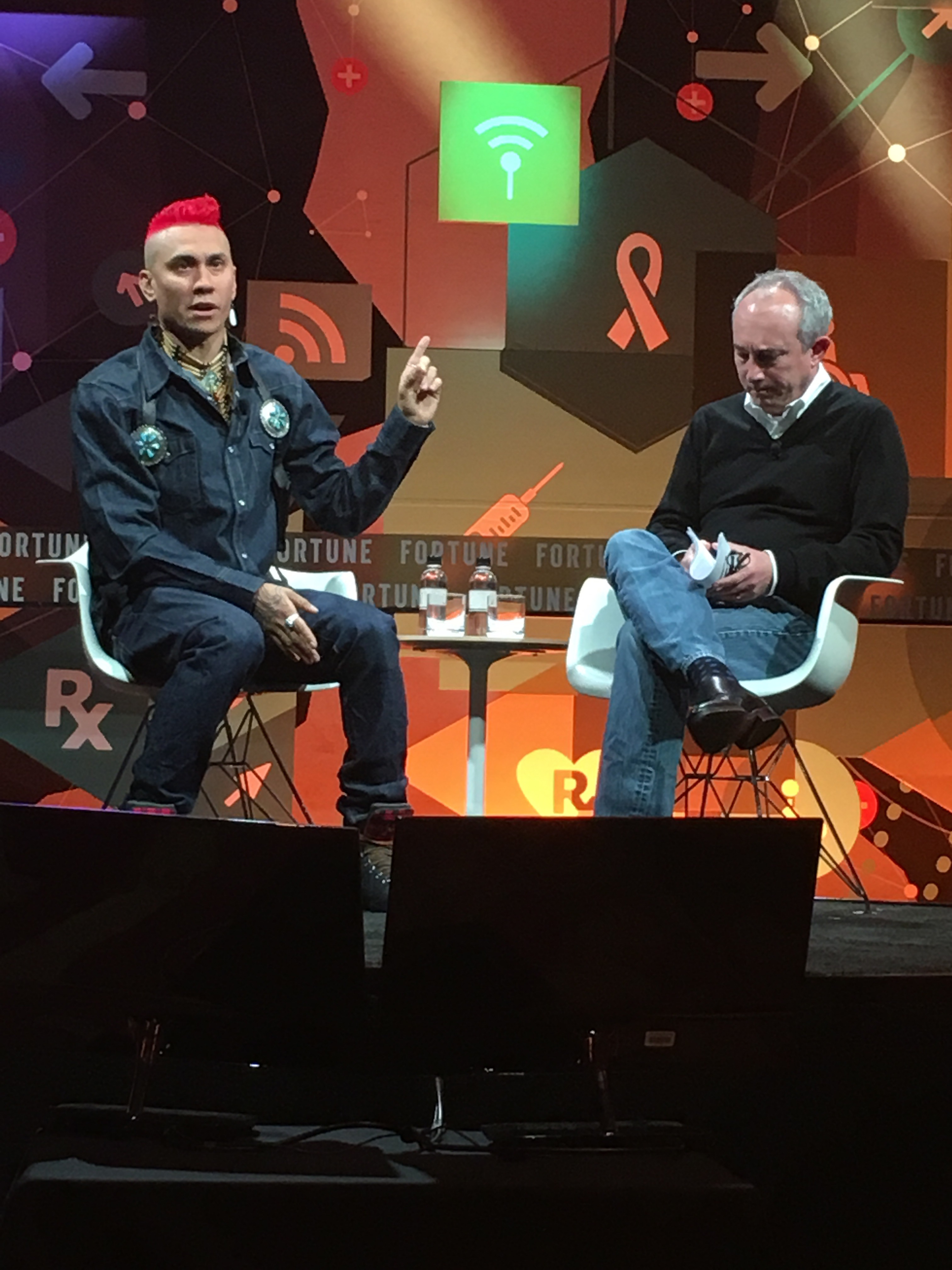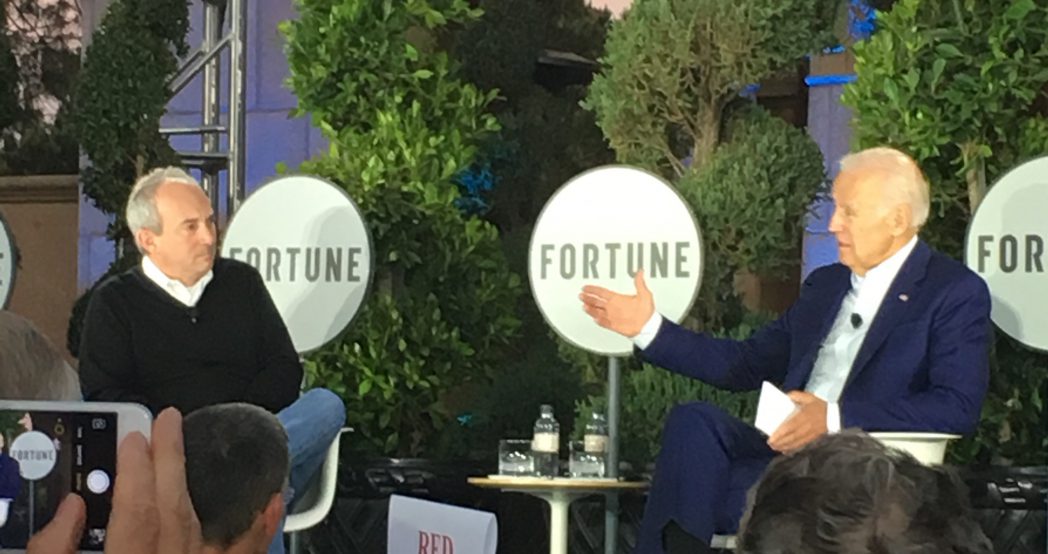While thinking back through the content of last week’s Fortune Brainstorm Health conference, I was struck by how many of the people who are making a significant impact in the cancer care sector had no prior healthcare background at all. What each of them did have in common though was a personal experience with the healthcare system, which had exposed a pain point where they felt their skills and experience could make a difference.
Mark Bertolini, the CEO of Aetna insurance saw his son diagnosed at 17 with an extremely rare cancer, and spend the next year in his hospital room connecting the various components of the healthcare system and ultimately seeing him survive, the only one of the 34 people who had ever been diagnosed with that particular cancer at the time to do so. Mark then broke his neck in five places skiing and went through his own long recovery journey. In both of these instances he found his son classified as a cancer patient, and himself as a spinal injury patient, with the person they were and what was important for them in driving their recovery unrecognised. He is a firm believer that truly personalised medicine is about finding solutions that allow you to do what you would like to do, but that your health is preventing you from doing, and that social investment can play a big role in delivering on that. Aetna is making logistic connections to connect individuals with resources that already exist in the local community, with the goal of improving health outcomes. They are building relationships with Home Depot that will have them install mobility ramps for seniors, and using Uber to transport isolated seniors to social centres. Interestingly for me as a pharmacist, Aetna is also working with CVS to utilise the proximity of their pharmacy network and the existing frequency of consumer visits to deliver health programs.



Biden looked at how he could change that, and what skills he could bring to the table and felt that his years in politics had delivered an ability to bring groups of people together, deliver them a message in his typical straight shooting style, and the platform his position provided gave him an ability to shame those participants if their urgency for change wasn’t maintained. This led to the creation of the White House Cancer Moonshot, with a focus on access to data, breaking down silos, increasing collaboration and most of all increasing the urgency, which now that he’s left office carries forward into the Biden Cancer Initiative.
He spoke of the impact the loss of his son had on his own presidential ambitions, telling us noone should run for president if they can’t promise all of their attention and effort, and saying ‘after Beau I knew I couldn’t do that’. Instead he’s committed to a purpose driven life, making an impact on policy and being an intellectual force for change. He spoke eloquently about his belief that if Americans can make an impact on cancer it will go far beyond the direct effects on patients and their families, but will transcend that to deliver hope and optimism for the country as a whole.

Each of these speakers had a different personal experience with cancer that saw them harness their skills and talents and commit to making a change, and none of them were ready to postpone. It’s definitely something that we can identify with at Icon Group, where our own sense of urgency to increase the accessibility of high quality cancer care is driving us to bring that care to areas of need, both domestically in Australia and increasingly abroad. We are no longer ready to postpone.
